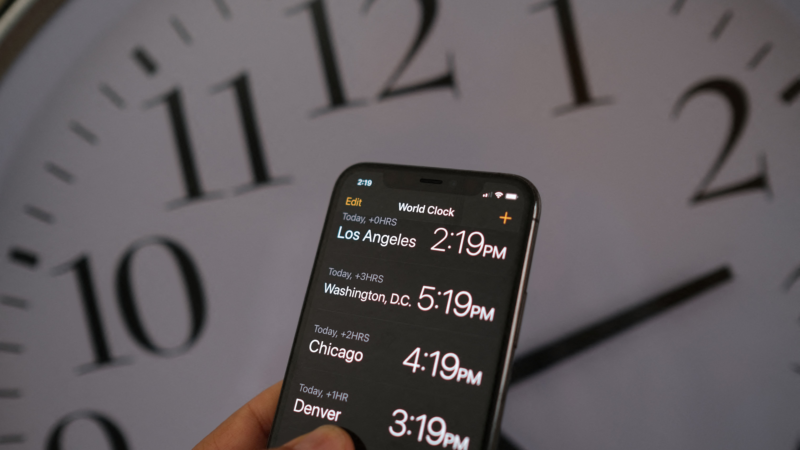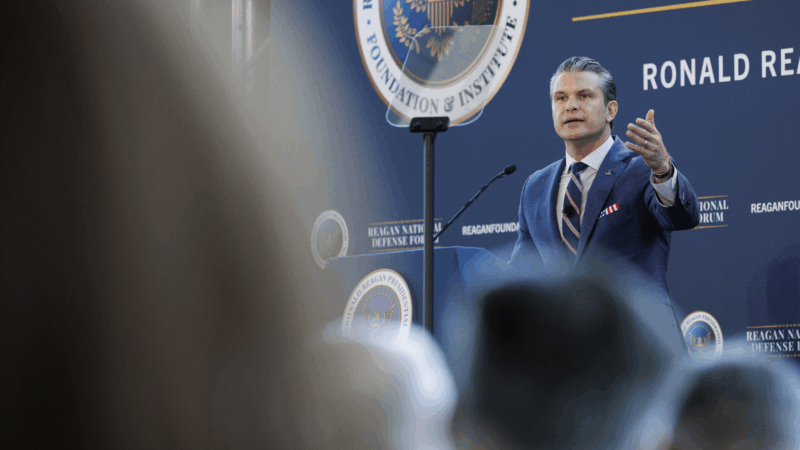Trump urges Congress to make daylight saving time permanent
President Trump is urging Congress to pass legislation that would make daylight saving time permanent — which, if enacted, would put an end to a longstanding debate over whether to change the time in the U.S. twice a year.
Both the House and Senate should “push hard for more Daylight at the end of a day,” the president wrote Friday morning on Truth Social.
“Very popular and, most importantly, no more changing of the clocks, a big inconvenience and, for our government, A VERY COSTLY EVENT!!!,” Trump also wrote.
The latest directive from Trump follows ongoing efforts in Congress to adopt daylight saving time — including the Sunshine Protection Act, which was reintroduced in the House and Senate by Florida Republicans Rep. Vern Buchanan and Sen. Rick Scott in January. Another Florida Republican, then-Sen. Marco Rubio, had previously championed the bill, first introducing it in 2018 and reintroducing it in 2021. The Senate passed the bill in 2022, but it never came to a vote in the House.
Every state observes daylight saving time except for two — Hawaii and Arizona, with the exception of the portion of Navajo Nation that’s in the state. U.S. territories American Samoa, Guam, Puerto Rico, the Virgin Islands and the Northern Mariana Islands also don’t change their clocks.
Trump, who has long been supportive of the change and tweeted in 2019 that making it permanent was “O.K. with me!,” appeared to soften his stance when he called it a “50/50 issue” in early March, three days before clocks moved an hour forward in most parts of the country.
“I assume people would like to have more light later, but some people want to have more light earlier because they don’t want to take their kids to school in the dark … A lot of people like it one way. A lot of people like it the other way,” he told reporters then in the Oval Office.
The issue was debated during a Senate hearing on Thursday, where Republican Sen. Ted Cruz from Texas called changing the clocks twice a year an “outdated and harmful practice.” Cruz also said while changing the clocks made sense in the early 20th century, advancement in technology has “drastically reduced the relative price of energy compared to the past.”
“When we take a closer look at the implications of changing the clocks, its impact on our economy, our health and our everyday lives, we can see that this practice is more than an annoyance,” Cruz, who is chairman of the U.S. Senate Committee on Commerce, Science, and Transportation. “The disruption to sleep patterns and the result in fatigue can have consequences on our productivity, mental health and well-being.”
Democratic Sen. Lisa Blunt Rochester from Delaware also said changing clocks twice has a negative impact on Americans and that “it’s time to figure this out.”
“The back and forth between daylight savings time and standard time needs to change and needs to stop,” she said. “We need to stop the clock. We need to find a solution and stick with it.”
While there is concern among sleep experts that switching the time biannually is not good for one’s health, some in the medical community also say a permanent daylight saving time might not be a good solution, either.
Dr. Karin Johnson, medical director of the Baystate Regional Sleep Medicine Program, previously told NPR a permanent standard of time is more beneficial.
“The scientific and medical community really feel it’s very important for us to go to permanent standard time, which is much more aligned with the sun in the sky and so better for our overall health and well-being,” Johnson said.
Light from satellites will ruin majority of some space telescope images, study says
Astronomers have long been concerned about reflections from satellites showing up in images taken by telescopes and other scientific instruments.
Defense Department is reviewing boat strike video for possible release, Hegseth says
In a speech on Saturday, Defense Secretary Pete Hegseth defended the strikes, saying: "President Trump can and will take decisive military action as he sees fit to defend our nation's interests."
Bama, Miami in, Notre Dame out and Indiana No. 1 in College Football Playoff rankings
Nobody paying attention for the past 24 months would be surprised to see Indiana – yes, Indiana – leading the way into this year's College Football Playoff.
McLaren’s Lando Norris wins first F1 title at season-ending Abu Dhabi Grand Prix
Red Bull driver and defending champion Max Verstappen won the race with Norris placing third, which allowed Norris to finish two points ahead of Verstappen in the season-long standings.
A ban on feeding pigeons ruffles lots of feathers in Mumbai
The pigeon population has exploded — a result of people feeding the birds. For some it's a holy duty and a way to connect to nature. Critics point to health risks tied to exposure to pigeon droppings.
UN humanitarian chief: world needs to ‘wake up’ and help stop violence in Sudan
The UN's top humanitarian and emergency relief official has told NPR that the lack of attention from world leaders to the war in Sudan is the "billion dollar question".








